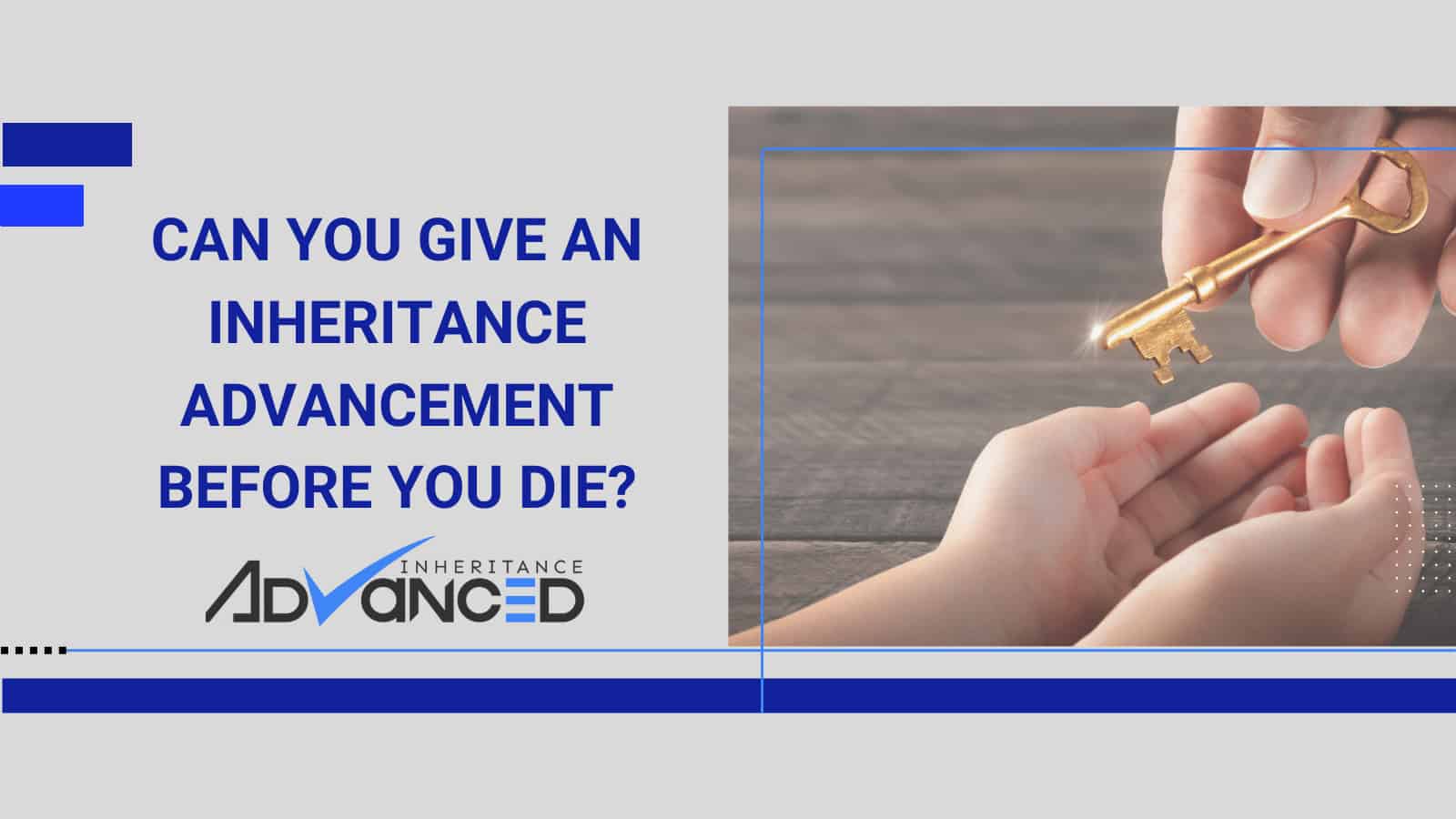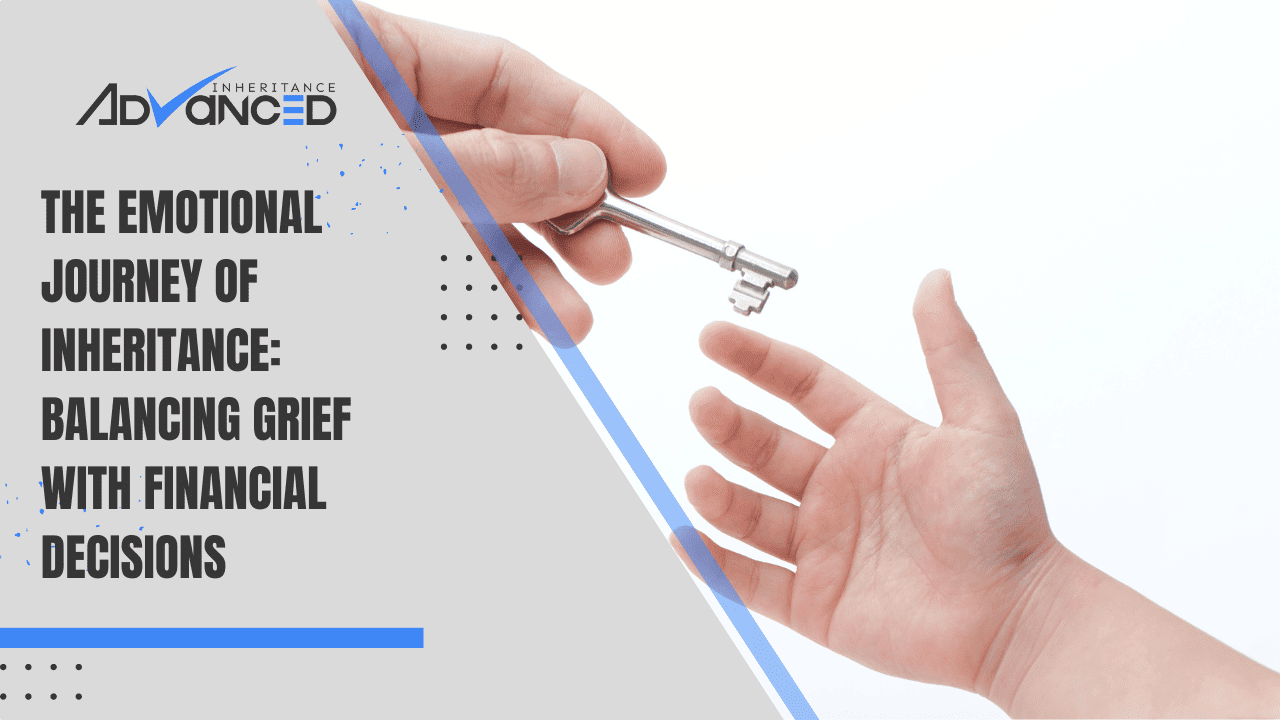Inheritance advancement refers to receiving a portion of your inheritance before the passing of the benefactor, traditionally accessed after the completion of the probate process. The usual scenario involves heirs receiving assets after their loved one has passed, but is it possible to shift this narrative and explore advancements before this event?
Typically, the inheritance process involves a probate court determining the validity of a will, overseeing the identification and appraisal of the deceased’s assets, payment of debts and taxes, and finally, the distribution of the remaining assets to the rightful heirs as per the will’s instructions or state law in the absence of a will.
A thought-provoking question arises: Can one grant an inheritance advancement while still living, thereby providing heirs with financial empowerment or stability during the benefactor’s lifetime? This question uncovers various layers, including legal, ethical, and emotional aspects, which we shall delve into in this exploration.

The Traditional Inheritance Process
Overview of the Conventional Inheritance Procedure
- Creation of a Will or Trust: A legal document, a will or trust, specifies the distribution mechanism of an individual’s assets upon their death.
- Probate Process: After death, the will is submitted to probate court, initiating a process that verifies the will, addresses debts and liabilities, and ultimately, enables the distribution of assets.
- Distribution of Assets: The executor, guided by the will or the court in its absence, ensures that the assets are distributed among the heirs as intended.
Timeline and Challenges in the Traditional Inheritance Process
- Probate Delays: The probate process can be time-consuming, often extending months or even years, postponing heirs from accessing their inheritance.
- Legal Complexities: Various legal hurdles, such as will contests and debt settlements, can complicate and prolong the process.
- Family Disputes: Disagreements among family members regarding the distribution of assets can arise, potentially leading to strained relationships and legal battles.
The Concept of Giving an Inheritance Advancement Before Death
Explanation of Inheritance Advancement Prior to Death
An inheritance advancement before death, in essence, is transferring assets or wealth to heirs while the benefactor is still alive. This could be done through various mechanisms like gifts, creating living trusts, or establishing joint accounts, ensuring that heirs have immediate access to their inheritance.
Legal and Ethical Implications
- Impacts on Estate Planning: Early inheritance can have significant implications on an estate, possibly affecting tax obligations, asset protection strategies, and the eventual distribution of the estate.
- Potential Legal Challenges: Depending on jurisdictional laws, early inheritance distribution might face legal challenges, especially if it’s perceived to be done to circumvent debts or other obligations.
- Ethical Considerations: Questions around fairness, especially among multiple heirs, and the ethicality of transferring assets while circumventing the traditional process, may arise.
Benefits and Risks
- Financial Stability for Heirs: Providing assets before death could assist heirs in addressing financial challenges or leveraging opportunities promptly.
- Possible Tax Implications: Depending on the amount and type of assets transferred, there could be tax liabilities for both the giver and recipient.
- Impact on Interpersonal Relationships: While the intention might be benevolent, early asset distribution could trigger discord among family members, affecting interpersonal relationships.
In the subsequent sections, we will delve deeper into the mechanics of providing an inheritance advancement, and discuss prudent financial management and planning to navigate through this intricate decision-making process.
The Mechanics of Providing an Inheritance Advancement
Possible Mechanisms
- Gifting: One of the simplest forms of providing an inheritance advancement is gifting, wherein assets or money are transferred without expecting return. However, it’s crucial to understand the tax implications and gifting limits set by jurisdictions.
- Creating a Living Trust: A living trust allows individuals to place assets within a trust for their own benefit during their lifetime, and stipulates the distribution of assets to beneficiaries upon their death, bypassing the probate process.
- Using Payable-On-Death (POD) Accounts: Establishing POD accounts, such as bank accounts or certificates of deposit, enables assets to be transferred to beneficiaries upon the account holder’s death, avoiding probate.
Legal Framework and Compliance
- Understanding Legal Limits: Explain legal boundaries related to asset transfers and potential obligations, like gift tax.
- Ensuring Fair Distribution: Discuss strategies, like creating a detailed will, to prevent future disputes by clearly defining the intended distribution of the remaining estate.
- Addressing Other Legal Heirs: Emphasize the importance of communicating with all potential heirs to prevent misunderstandings and legal challenges.

Inheritance Advance Companies: Role and Services
Navigating through the intricacies of inheritance can often be a complex and emotionally taxing journey, prompting many to seek the expertise and facilitation provided by inheritance advance companies. These entities operate within a specific niche of financial services, providing beneficiaries with a pathway to access their inheritance in a swifter and more immediate manner, even amidst the often lengthy and cumbersome probate process.
Understanding the Workings of Inheritance Advance Companies
Inheritance advance companies serve as a bridge, alleviating the potential financial strain experienced by heirs as they await the conclusion of the probate process. Beneficiaries can receive a portion of their inheritance upfront, typically in the form of a cash advance, while the company, in return, secures a claim on the inheritance once it is distributed. The mechanics of this transaction involve a fee or percentage of the advanced amount, providing the company with its revenue and compensating it for the risk and time associated with the advance.
Differentiating Between Post-Death Inheritance Advances and Pre-Death Advancements
While both post-death inheritance advances and pre-death advancements offer beneficiaries earlier access to inheritance, the mechanisms and implications of each differ markedly. Post-death advances transpire after the benefactor’s passing, wherein the inheritance advance company essentially purchases a portion of the anticipated inheritance, providing immediate funds to the heir while waiting for the probate process to conclude.
On the contrary, pre-death advancements occur while the benefactor is still alive, involving a direct transfer of assets or funds to the heir. This may be achieved through various means such as gifting, establishing a living trust, or utilizing payable-on-death accounts. Each method comes with its unique set of legal and financial considerations and does not involve the services or fees of an inheritance advance company.
Case Examples of How Inheritance Advance Companies Operate
Consider a scenario where an heir, amidst the probate process, encounters a financial predicament requiring immediate funds – perhaps to settle debts, manage expenses, or capitalize on an investment opportunity. In this instance, an inheritance advance company might assess the inheritance, validate the heir’s claim, and offer a portion of the expected assets in advance, subtracting their fee and relinquishing any claims on the remaining inheritance once probate concludes.
Contrastingly, imagine a benefactor who, seeking to assist an heir with immediate financial needs, opts for a pre-death advancement by directly gifting them funds. This act, while immediate and fee-free, might carry potential tax implications and influence the eventual distribution of the estate upon the benefactor’s passing.

Financial Planning and Management
Navigating through the intricacies of inheritance, particularly pre-death advancements, involves meticulous financial and emotional considerations.
Importance of a Robust Estate Plan
Estate planning is paramount in safeguarding financial legacies and ensuring assets are allocated according to benefactors’ wishes. Comprehensive planning involves crafting wills, establishing trusts, and ensuring powers of attorney are in place, facilitating the seamless distribution of assets and honoring the benefactor’s intents and values amidst the emotional and legal complexities of inheritance.
Considering Financial Implications for the Giver and Recipient
The journey towards pre-death inheritance advancements must carefully weigh the potential financial ramifications for both benefactor and beneficiary. Benefactors must contemplate possible tax liabilities and the impact on their remaining estate, while beneficiaries navigate potential tax implications and familial dynamics. Adjustments to existing legal documents may be requisite to reflect these advancements, balancing legal, financial, and relational aspects.
Employing Financial Advisors and Estate Planning Attorneys
Financial advisors and estate planning attorneys play a pivotal role in guiding through the legal, financial, and emotional landscapes of pre-death advancements. Advisors proficiently navigate through wealth management and tax implications, while attorneys ensure legal compliance and safeguard benefactors’ wishes amidst the intricacies of inheritance planning, offering a holistic approach that intertwines legal, financial, emotional, and ethical facets seamlessly.
Concluding Thoughts and Inviting Action
Navigating through the complex tapestry of inheritance advancement, especially before death, illuminates numerous facets spanning legal, ethical, financial, and emotional domains. Inheritances, traditionally tethered to the probate process and enacted post-mortem, can undeniably be mobilized earlier under certain circumstances, leveraging legal frameworks like gifting, living trusts, and POD accounts.
But it’s imperative to underline the intrinsic risks and reverberations of such decisions, where family dynamics, tax implications, and potential legal challenges intertwine to form a labyrinthine landscape for both benefactors and beneficiaries. Utilizing inheritance advance services may offer a semblance of ease and expedience post-death, yet the parameters shift substantially when contemplating advancements while still alive.
Embrace Informed Decisions
Embarking upon this journey requires meticulous planning, transparent communication, and adherence to legal and ethical guidelines. Not only should the financial logistics be dissected and arranged prudently, but the emotional and relational bearings should also be tenderly navigated, ensuring that the decision to advance inheritance doesn’t inadvertently sow seeds of discord among loved ones.
Engage with Professionals
In the intricate pathway of early inheritance and estate planning, professional assistance becomes not just valuable, but often indispensable. Engaging with financial advisors, estate planning attorneys, and where pertinent, inheritance advance service professionals, can sculpt a smoother, more informed, and legally compliant pathway toward realizing this financial transition.

Inaugurate Your Journey with Inheritance Advance
We invite you to learn more about inheritance, delve deeper into the mechanics of advancements, and understand the multitudinous aspects that circulate within this financial arena. Reach out to Inheritance Advance – your companion in navigating through these complex waters, ensuring that your journey is not only legally sound and financially strategic but also emotionally and ethically cognizant.
Whether contemplating a traditional inheritance process or exploring the somewhat uncharted territories of pre-death advancements, Inheritance Advance stands with you, illuminating the pathway with expertise, empathy, and reliable service.









